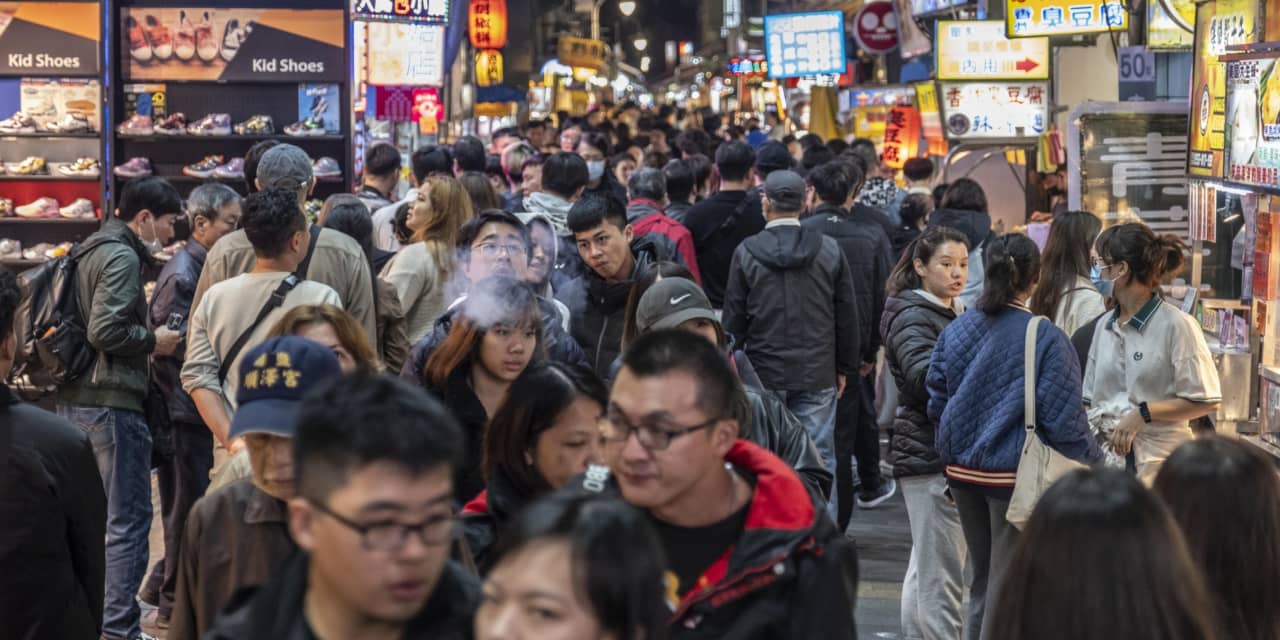Taiwan’s hotly anticipated presidential election is weeks away and will decide the fate not just of the island democracy of 24 million people, but of the most dangerous geopolitical flashpoint between China and the U.S.
Here’s what you need to know about the Jan. 13 election.
Taiwan is a self-ruled island off the coast of southern China that split from the mainland in 1949. It is a thriving capitalist democracy with a civil liberties rating higher than the U.S., France, and the U.K., according to Freedom House.
Communist-run Beijing says it will take back Taiwan by force if necessary and has ramped up jet fighter and warship incursions close to the island. While the United Nations doesn’t officially recognize Taiwan, the U.S. remains its closest ally and longtime arms supplier.
Washington employs a policy of “strategic ambiguity” in the event of a Chinese invasion of Taiwan—essentially not revealing what it would do.
In displays of support, the U.S. and its allies have sent aircraft carriers and destroyers through the 100-mile Taiwan Strait and the surrounding South China Sea, through which trillions of dollars in trade are shipped each year. Taiwan also produces over 90% of the world’s most advanced semiconductor chips.
The Candidates
The election will decide the next president and all 113 legislature seats.
Presidents are limited to two consecutive four-year terms. Incumbent Tsai Ing-wen is wrapping up her final term as head of the Democratic Progressive Party (DPP), sometimes labeled the pro-independence or liberal party.
Tsai easily won the 2016 and 2020 elections. The party’s approval ratings were boosted by its adept handling of the Covid crisis and concerns about China’s assertiveness. Tsai emerged as the torchbearer of Taiwanese de facto sovereignty.
Needless to say, tensions with Beijing are highest when the DPP is in power. Tsai’s vice president, William Lai Ching-te, is running to succeed her and is narrowly the front-runner. Lai’s running mate is Hsiao Bi-khim, Taiwan’s former envoy to the U.S. and a descendant of a Mayflower passenger through her mother, North Carolina-born Peggy Cooley.
The Lai-Hsiao ticket is only points ahead of right-wing Kuomintang (KMT) candidate Hou Yu-ih, the mayor of New Taipei City. Hou advocates closer ties with China and is widely considered Beijing’s preferred candidate.
The wild card in the race is an unusually competitive third-party candidate. Former Taipei Mayor Ko Wen-je and his Taiwan People’s party (TPP) are unlikely to win the presidency or a legislative majority, but the votes they pull from others could be game changers.
The Politics
The Taiwan public was on a roller-coaster ride in November as Ko and Hou said they would put their political differences aside and form a single ticket to topple the incumbent DPP. Those efforts failed, with the two bickering over which would head the ticket, and the election returned to a tossup.
Terry Gou, the billionaire founder of
Apple
supplier Foxconn, briefly entered the race, plastering his face on billboards across the country, but he failed to gain traction and withdrew last month.
Regardless of party, Taiwanese leaders have traditionally had close ties to the U.S. Eight of the last 10 Taiwanese presidents and vice presidents received graduate degrees from elite American universities.
The Issues
Top domestic issues include cost of living, housing, and energy. Nuclear power has long been a controversial issue, in part because China could cut off Taiwan’s traditional energy supplies, 97% of which are imported.
The Legislature
Taiwan has had a divided government under only one president—the DPP’s Chen Shui-bian faced a KMT-controlled legislature from 2000 to 2008.
The period was marked by animosity and gridlock. Recent polls show that none of the three main parties is likely to win the majority needed to control the legislature, with the DPP and KMT at roughly 30% each, and the TPP at around 18%, according to a late-November poll by Taiwan’s TVBS Poll Center.
This means the TPP will have outsized power, as the other parties need it to form a majority coalition. If this happens, the TPP could decide case-by-case what issues to support. But one analyst says the KMT-TPP falling out over the joint presidential ticket could bode well for the DPP.
“The bad blood generated by the failed coalition partnership could make the TPP more willing to work with the DPP, whether they are in the ruling or opposition coalition,” Russell Hsiao, executive director of the Global Taiwan Institute, wrote in a recent analysis.
The China Factor
China has hundreds of missiles pointed directly at Taiwan and regularly sends jet fighters into Taiwan’s air defense zone, accompanied by close-range transits of warships from China’s Navy.
Beijing has also become more active in its influence campaigns. According to Sweden’s Varieties of Democracy project, for the tenth consecutive year, Taiwan ranks first in the world as a target for disinformation. Research by Taiwan AI Labs concluded that Chinese efforts center on boosting the KMT’s Hou while attacking his opponents.
“I would not be surprised if on Jan. 11, two days before the election, there were a major announcement from Beijing that said ‘this is a choice between peace and war’,” Richard Bush, a nonresident senior fellow at the Brookings Institution, said in an online forum.
Write to [email protected]
Read the full article here




